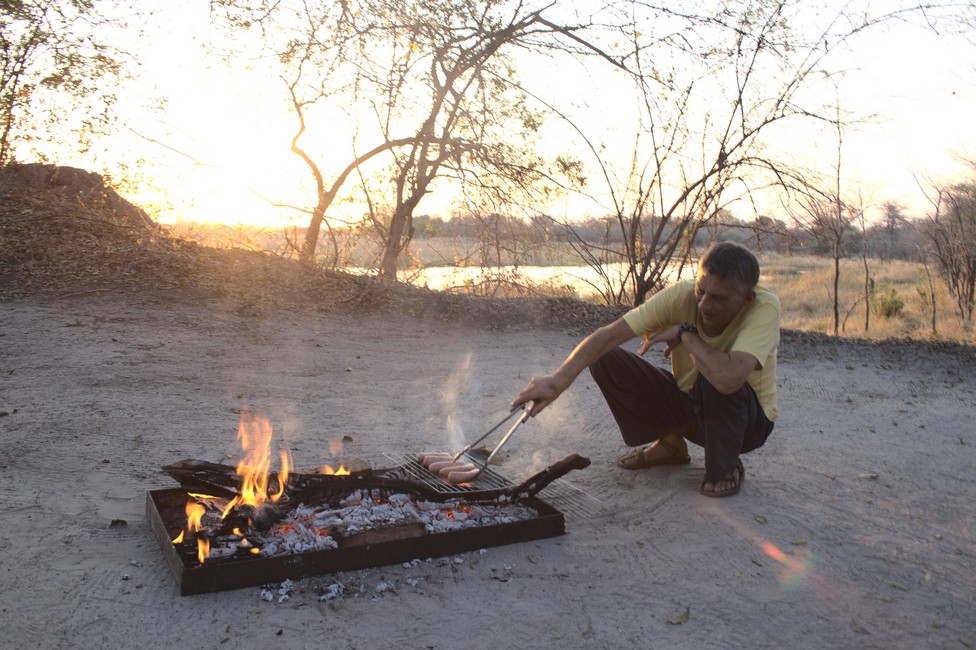Overlanding camping is a multifaceted adventure that combines the thrill of off-road exploration with the tranquility of camping in remote locations. This mode of travel offers an immersive experience, allowing enthusiasts to traverse diverse terrains, encounter breathtaking landscapes, and foster a deep connection with nature. In this comprehensive guide, we’ll delve into the essence of overlanding camping, exploring its history, essential preparations, gear requirements, vehicle considerations, safety measures, and the unparalleled joys of this outdoor pursuit.

The Essence of Overlanding Camping
History and Evolution
The roots of overlanding can be traced back to early explorers who ventured into uncharted territories using rugged vehicles to navigate challenging landscapes. It evolved as a means of long-distance travel, gaining popularity among adventurers seeking to immerse themselves in remote regions, far removed from urban amenities.
Over time, this mode of exploration transformed into a blend of self-sufficient travel and camping, emphasizing the journey’s experience as much as the final destination. Today, overlanding represents a lifestyle—a way to disconnect from the modern world and reconnect with nature.
Preparation and Planning
One of the fundamental aspects of successful overlanding is meticulous preparation. Thorough planning ensures a safe and enjoyable journey. It involves several key elements:
- Vehicle Readiness: A robust and reliable vehicle suited for off-road conditions is essential. Regular maintenance, appropriate modifications, and a thorough check of vital components are crucial before embarking on an overlanding trip.
- Essential Gear: Overlanders need to pack strategically, considering the duration of the trip, the terrain, weather conditions, and potential emergencies. Essential gear includes camping equipment, food supplies, water filtration systems, first aid kits, navigation tools, communication devices, recovery gear, and tools for vehicle repairs.
- Route and Destination: Researching the intended route and destination is imperative. Knowledge of the terrain, available campsites, local regulations, and potential challenges enables better preparation and enhances safety.
- Safety Measures: Overlanding involves inherent risks. Being well-versed in basic first aid, understanding emergency procedures, and carrying necessary safety gear are crucial components of a comprehensive safety plan.
Gear and Equipment
Vehicle Setup
Selecting the right vehicle for overlanding depends on personal preferences and the intended terrain. Common choices include 4×4 trucks, SUVs, or purpose-built off-road vehicles. Important considerations include:
- Off-road Capability: Vehicles should have adequate ground clearance, a robust suspension system, and four-wheel-drive capabilities.
- Storage and Modifications: Equipping the vehicle with roof racks, storage solutions, winches, off-road tires, and lighting enhancements enhances its utility for overlanding.
Camping Gear
Overlanding camping necessitates durable and versatile camping gear designed for extended stays in remote locations. Key items include:
- Tents: Overlanders often opt for rooftop tents or ground tents, balancing convenience, comfort, and quick setup.
- Cooking Equipment: Portable stoves, cooking utensils, and food storage solutions cater to meal preparation while on the road.
- Water Management: Reliable water storage containers and filtration systems are vital for staying hydrated throughout the journey.
Navigation and Communication
Overlanding often involves traversing unfamiliar territories. Reliable navigation and communication tools are essential:
- GPS Systems: Robust GPS units or satellite navigation systems aid in route planning and navigation in remote areas.
- Communication Devices: Satellite phones, two-way radios, or emergency beacons ensure connectivity in areas with limited or no cell coverage.
The Overlanding Experience
Immersive Journey
The allure of overlanding lies in the journey itself. Traveling through diverse landscapes, encountering wildlife, and experiencing various cultures along the way contribute to a rich and immersive adventure.
Connection with Nature
Overlanding offers unparalleled opportunities to connect with nature. Whether camping near serene lakes, in dense forests, or atop mountain ranges, overlanders experience the raw beauty of untouched landscapes.
Self-Reliance and Problem-Solving
Overlanding encourages self-reliance and problem-solving skills. Facing challenges such as navigating challenging terrains, handling vehicle repairs, and adapting to changing weather conditions fosters resilience and resourcefulness.
Community and Camaraderie
The overlanding community is diverse and supportive, often sharing tips, advice, and camaraderie. Encounters with fellow overlanders create a sense of community and shared experiences, adding depth to the journey.
Conclusion
Overlanding camping is more than a recreational activity; it’s a lifestyle that celebrates exploration, self-sufficiency, and appreciation for nature. With careful preparation, the right gear, and a spirit of adventure, overlanding offers an extraordinary way to experience the world and create enduring memories amidst the untamed beauty of remote landscapes. As you embark on your overlanding journey, remember to prioritize safety, respect nature, and relish every moment of this exhilarating and transformative experience.